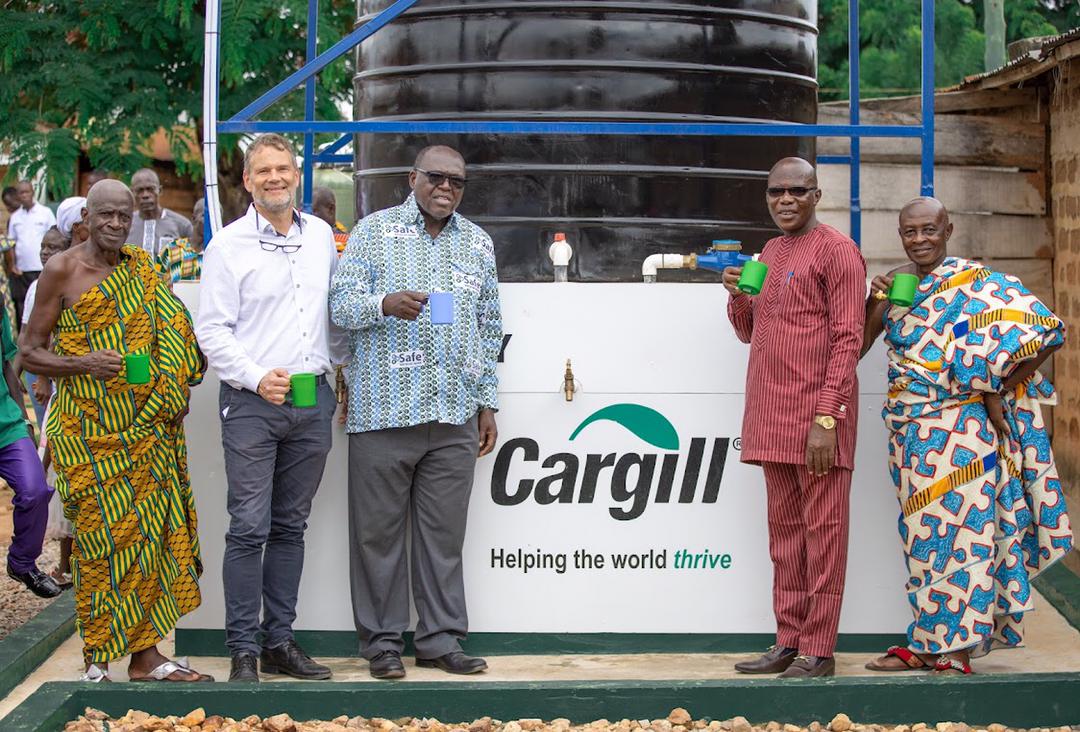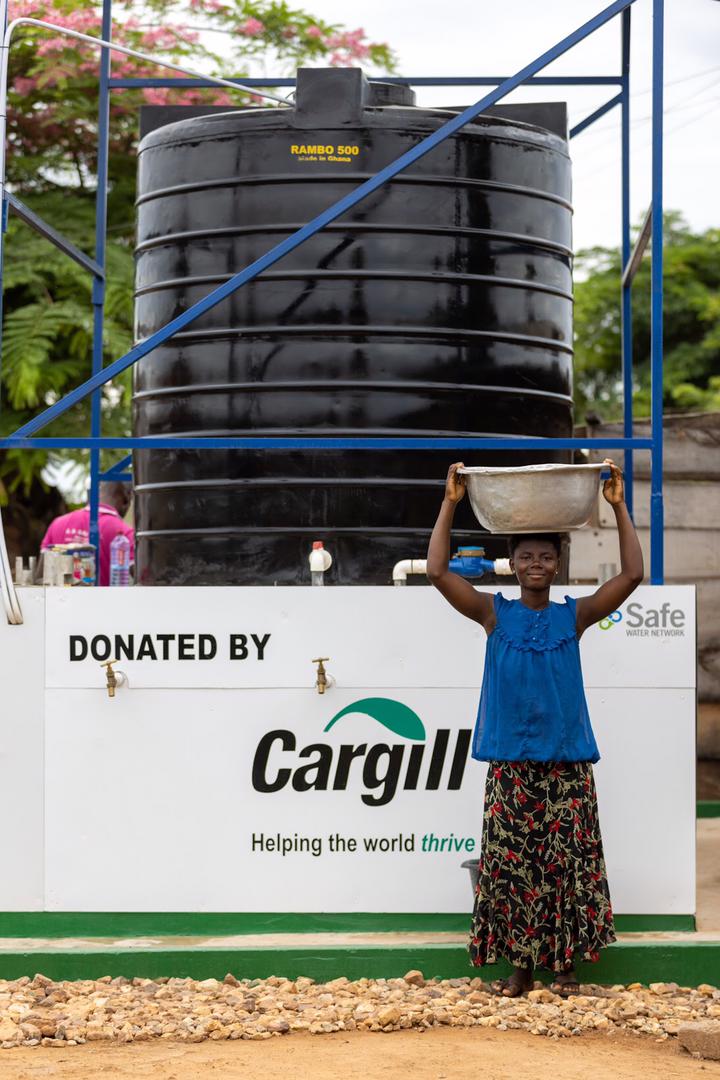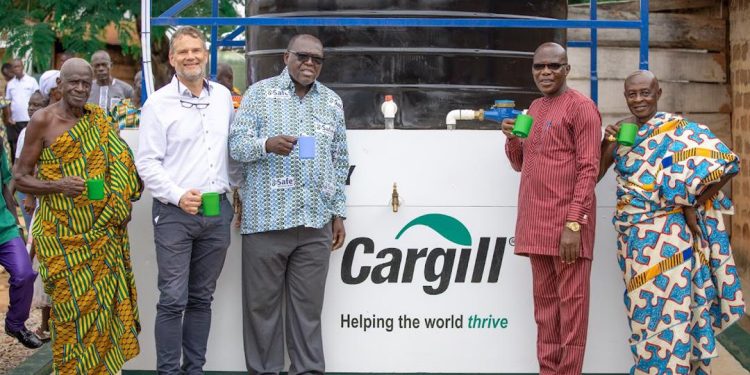Cargill Ghana Limited, together with its technical partner, Safe Water Network (SWN), has completed and handed over ten (10) mechanized solar powered water systems constructed in 10 cocoa-growing communities.
The project is aimed at ensuring access to Water, Sanitation and Health (WASH) services in deprived cocoa communities and was funded by Cargill.
It is expected that about 15,000 people will be directly and indirectly impacted through this project.
At a brief commissioning event held at Afamu in the Western North Region under the theme ‘Expanding Sustainable Access to Water, Sanitation and Hygiene (WASH) for Cocoa Growing Communities’, Cargill officially opened and handed over these water systems to the beneficiary communities such as Afamu, Nambro, Abrabra, Asafo, Kantankrobo, Baakokrom,Surano, Ntrentenso, Punikrom and Kramokrom in the Bibiani-Anwiaso-Bekwai and Sefwi Wiawso Municipalities.
On behalf of the people of the area, the Abusuapanin of the Sefwi Anwiaso Traditional Area, Nana Kyem Kofi Ankoanna II, who delivered a speech on behalf of the Paramount Chief, Ogyeahohoo Yaw Gyebi II, expressed gratitude to Cargill Ghana and assured of the communities’ willingness to partner Cargill on its community development sustainability initiatives.
“I want to thank Cargill for being a true partner to the communities in this area. As a grateful people, I can assure you that we will stick with you as our preferred cocoa partner” he remarked.
Expanding access to water to rural communities is key to the government’s agenda to improve livelihoods especially in cocoa growing communities.
This was reiterated in a speech read on behalf of the Western North Regional Minister, Hon. Richard Ebbah Obeng by the region’s spokesperson, John Koah.
He commended Cargill’s sustainability initiative and underscored the importance of potable water to the lives of Ghanaians living in rural communities.
“The United Nations Development Goal 6 of providing safe and affordable water for all by the year 2030 cannot be achieved by the government alone. It is in the light of this that I want to commend highly Cargill Ghana Ltd for supporting communities with safe and affordable water to augment the government’s effort” he said.
The beneficiary communities, who have been part of Cargill’s sourcing network and the Cargill Cocoa Promise since 2017, were selected based on a Community Action Plan (CAP) development and a needs assessment in collaboration with CARE International.
Sustainability Country Lead for Cargill Ghana, Mr. Samuel Apana, said the project forms part of the company’s Community Wellbeing Strategic Action Plan linked to the United Nations’ Sustainable Development Goal (SDG) 6 of providing safe and affordable water for all by 2030.
The project, he also said, is in line with delivering benefits under the Cargill Cocoa Promise, which is the company’s sustainability strategy.
 “The commissioning of the water-projects today not only demonstrates our commitment under the Cargill Cocoa Promise to improve the wellbeing of farmers and their communities, but also our resolve to partner with customers who have established water goals as part of their sustainability strategies to realize their ambitions” Mr. Apana commented.
“The commissioning of the water-projects today not only demonstrates our commitment under the Cargill Cocoa Promise to improve the wellbeing of farmers and their communities, but also our resolve to partner with customers who have established water goals as part of their sustainability strategies to realize their ambitions” Mr. Apana commented.
 Management and operation of these water systems is community-led. The solar water systems will be owned by the local Assemblies in the area and will be operated and maintained by community Water & Sanitation Management Teams (WMSTs) and Operators, who have been trained as part of this project.
Management and operation of these water systems is community-led. The solar water systems will be owned by the local Assemblies in the area and will be operated and maintained by community Water & Sanitation Management Teams (WMSTs) and Operators, who have been trained as part of this project.
These teams will be responsible for the installed water systems and will be carrying out maintenance and repair works, if need be, with proceeds from the sale of water from the system.
As part of Cargill’s global water commitments, the company works in partnership with the Global Water Challenge (GWC) on implementing new water, sanitation and hygiene (WASH) efforts in Ghana, Cameroon, and Côte d’Ivoire.
These initiatives are expected to benefit over 100,000 people in 26 high-need communities across four of Cargill’s priority watersheds.




Comments are closed.